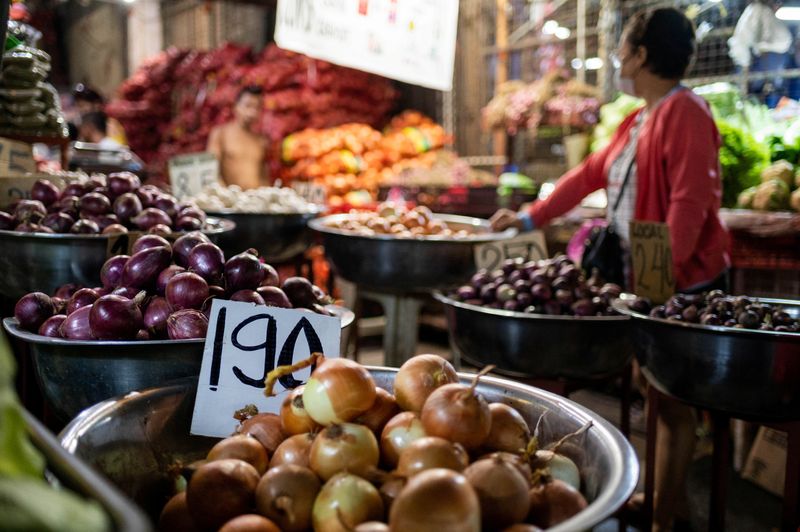By Neil Jerome Morales and Mikhail Flores
MANILA (Reuters) -Consumer prices in the Philippines rose for a second month in September, increasing the pressure on the central bank to resume raising interest rates.
A double-digit gain in the price of rice drove annual inflation to accelerate by 6.1% last month, its fastest pace in four months, according to data from the Philippine Statistics Authority released on Thursday.
That was higher than August's 5.3% rate and above the 5.3% forecast in a Reuters poll. The increase will make the central bank's 2%-4% target for the year harder to reach.
The country's economic planning agency on Thursday said it would recommend extending the lowered tariff rates on rice until December 2024, a day after Philippine President Ferdinand Marcos Jr lifted the cap on rice prices.
With the supply of rice adequate, Marcos has pinned the blame on the increase in the cost of the national staple on hoarders, smugglers and price manipulators.
Rice inflation quickened by 17.9% in September, the fastest in over 14 years, the statistics authority said, helping fuel the 10.0% food inflation rate for the month.
The Philippines saw some slight moderation in underlying price pressures, with core inflation, which doesn't include volatile food and energy prices, easing to 5.9% in September from 6.1% in August.
September's faster-than-expected inflation could convince the Bangko Sentral ng Pilipinas (BSP) to resume hiking rates after it left its benchmark rate steady at its last two meetings.

"This data point and the shift in the inflation path likely prompts one or two (rate hikes) this year although we feel the timing might be more tied to a potential, if it happens, Fed hike in early November," ING Economist Nicholas Mapa said.
Last month's inflation print brought year-to-date average inflation to 6.6%.